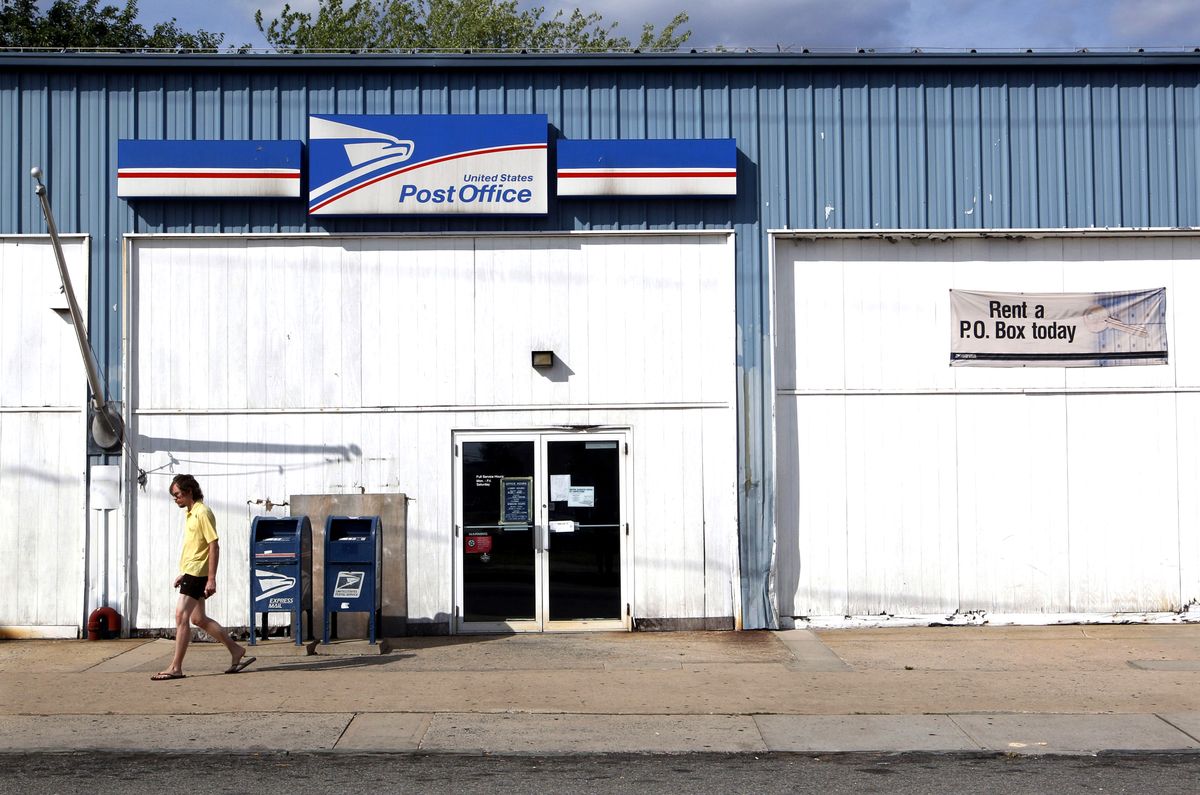If Trump really wants to fix USPS, he should look at how the Republican government of 2006 destroyed it in the first place

theweek.com
Postal Accountability and Enhancement Act of 2006.
Passed by a Republican-led Congress and signed into law by President George W. Bush, the PAEA gave the Postal Service new accounting and funding rules for its retiree pension and health benefits. Up until 2006, the USPS funded those obligations on a pay-as-you-go-basis, pulling out of its pension fund and adding to it as retirees' costs came in.
But the PAEA required the Postal Service to calculate
all of its likely pension costs over the next 75 years, and then sock away enough money between 2007 and 2016 to cover most of them.
This is one of those ideas that sounds responsible on the surface but is actually pretty nuts.
Consider your average 30-year mortgage. What if you had to set aside a few hundred thousand dollars right now, enough to pay the whole thing, even if you were still going to make payments over 30 years? No one would ever take out a mortgage.
That's the whole point: the costs only come in over time, and the income you use to pay them comes in over time as well. It works exactly the same for retiree pensions and benefit funds. Which is why, as economist Dean Baker
pointed out to Congress, pretty much no one else does what the PAEA demanded of the Postal Service.
Meeting Congress' arbitrary mandate required putting away an extra $5.6 billion per year. "It is equivalent to imposing a tax of 8 percent on the Postal Service's revenue," Baker said. "There are few businesses that would be able to survive if they were suddenly required to pay an 8 percent tax from which their competitors were exempted."
Eventually, the burden became too great, and the USPS
began defaulting on the PAEA payments in 2012. But the damage was done.
The Postal Service lost $62.4 billion between 2007 and 2016, and its own Inspector General attributed $54.8 billion of that to prefunding retiree benefits. Without the PAEA, the Postal Service wouldn't be doing stellar. (Though you could plausibly blame many of its remaining struggles on the Great Recession.) But it probably would've spent at least part of the last decade making
comfortable profits.
"The Postal Service's $15 billion debt is a direct result of the mandate," the Inspector General
wrote in 2015. "This requirement has deprived the Postal Service of the opportunity to invest in capital projects and research and development."
In fact, it gets worse. The PAEA also required the Postal Service to invest its retiree funds exclusively in government bonds. Once again, this is a rather unusual practice. While it mitigates risk, it's also a great way to earn really low returns.
Then the USPS has to set aside even more money to achieve the same benefit level. Baker calculated that just getting rid of this requirement could make the Postal Service profitable again.
Now, in a sane world, the USPS would be treated as a universal public good: Everyone would understand that it provides the bedrock delivery service to poorer and farflung areas that private carriers won't bother with because doing so isn't profitable. Instead, the Postal Service is expected to compete with the private market, and fund all of its costs out of its own revenue, without subsidies from the rest of government.
That's bad enough. But it's downright perverse to add extra handicaps that a private competitor like FedEx would never impose on itself.
Maybe that was just dumb politics. But it looks an awful lot like deliberate sabotage of a perfectly good public institution. It turns out Trump's task force will include Treasury Secretary Steven Mnuchin and White House budget director Mick Mulvaney. The latter in particular is a conservative small-government ideologue.
It doesn't seem too crazy to think they'll recommend privatizing the USPS and selling it off for parts. And that they'll justify this recommendation by claiming the Postal Service just can't seem to compete.


